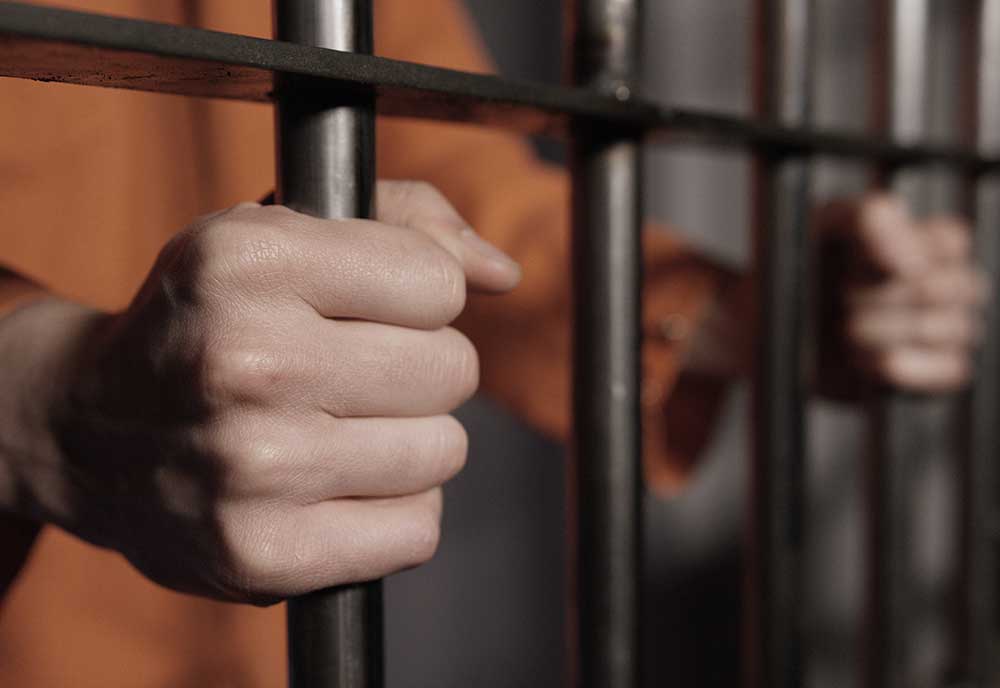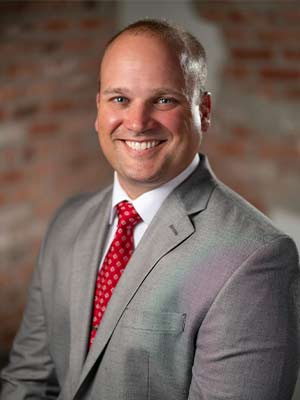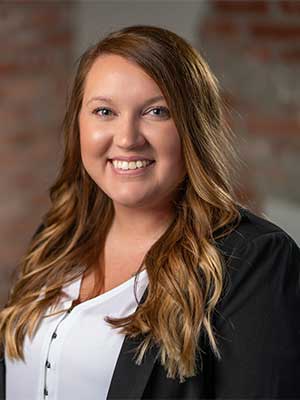
Criminal Defense Lawyer
If you are facing charges for any criminal offense, you must have the best legal defense representation available. A conviction on any criminal charge can impact your future in several negative ways. Employment, educational opportunities, and many other aspects of your life may suffer due to a conviction for a seemingly minor offense. That’s why consulting with a criminal defense lawyer in Camdenton and Lebanon, MO, is essential.
At Deputy & Mizell, L.L.C. law firm, our criminal defense lawyers have represented clients in various misdemeanor and felony offenses. Our goal is to avoid a conviction in every case. When you hire our firm, you can rely on us to protect your rights and preserve your good name. Contact Deputy & Mizell today for a free consultation.
SCHEDULE A FREE CONSULTATIONHow A Criminal Defense Lawyer in Missouri Can Help
Each state determines what a crime is and the punishments, making criminal law extremely complex. The average person will not understand criminal law or the criminal justice process. That is why it is critical for those charged with committing a crime to obtain professional representation during criminal proceedings.
Our criminal defense attorneys will analyze your case and decide which avenue to take. Sometimes, we have convinced the court to drop charges against our clients based on insufficient evidence or improper procedure. For example, we could show that a policeman did not have a compelling reason to believe you committed a crime. If the officer had no probable cause, the court can drop the charges before the trial begins.
Options for Criminal Court Lawyers
Our team will negotiate on your behalf. We can work to lower your bail, eliminate it completely, or make a plea deal with the prosecution. Our lawyers in Camdenton and Lebanon will try to arrange a lesser punishment or sentence if we choose a plea bargain. In a criminal trial, we assist with jury selection, provide opening statements, and question witnesses to debunk the prosecutor’s case.
Benefits of Hiring Our Missouri Criminal Attorneys
Our experienced criminal defense lawyers in Camdenton and Lebanon, MO, are dedicated to fighting for our clients — no matter the situation. Our comprehensive understanding of law enforcement and the criminal justice system allows us to effectively build your defense strategy. Our trial lawyers defend you based on the case’s strengths and weaknesses.
We defend you against any type of criminal matter, including the following:
- Driving While Intoxicated (DWI/DUI)
- Boating While Intoxicated (BWI/BUI)
- Minor in Possession (MIP)
- Assault & Domestic Violence Charges
- Death Penalty Cases
- Felony and Misdemeanor Drug Charges
- Serious Felony Charges
- Jury Trials
- Speeding tickets
- Traffic Offenses
- License Reinstatement
- License Suspensions
- Expungements
If you or someone you know is being charged with a criminal case, contact the knowledgeable criminal defense attorneys at Deputy & MizellIf you or someone you know faces charges in a criminal case, contact the law offices of our qualified criminal defense attorneys. Deputy & Mizell is proud to provide legal services to Camdenton, Lebanon, and the surrounding Missouri communities.
Criminal Defense FAQs
Facing criminal charges can be a very uncertain, overwhelming experience, and you will have many questions. To effectively handle the criminal proceedings in court, you need answers — read our frequently asked questions below.
The compassionate criminal defense lawyers in Camdenton and Lebanon, MO, at Deputy & Mizell, L.L.C have over 70 years of combined legal experience. Our team has represented clients in Missouri in various misdemeanor and felony offenses. We will develop a solid defense strategy and provide expert guidance throughout the case. Contact us today!
What happens after my arrest?
Generally, you will go to the police station for “booking.” The police will take personal, historical, and biographical information to see if you have any warrants or criminal history.
What is the difference between an arraignment hearing, a grand jury indictment, and a preliminary hearing?
An arraignment hearing is a court proceeding where officials read the charges against you, and you enter a plea. The arraignment is an “initial appearance” because it is typically your first appearance in court.
Grand jury proceedings are similar to preliminary hearings. They both help determine whether there is enough evidence to bring criminal charges or an indictment against you. The prosecutor will work with a grand jury to make a decision. In the federal system, a grand jury can be 16 to 23 people.
No preliminary hearing is needed if the case goes to a grand jury indictment. A preliminary hearing is a “trial before the trial” where the judge decides whether enough evidence exists to force you to stand trial. It involves lawyers on both sides and the judge.
What happens at the arraignment?
After submitting your plea, the judge sets a date for your case’s procedural event. The arraignment is where the prosecutors will use the information gathered by the police to argue your release from custody and if bail/bond is required. If you do not already have a criminal defense attorney, the judge will appoint one to you.
Do I need an attorney at my arraignment?
It’s almost always better to have a lawyer present, even though it may not be required. The courts will give you a formal account of your charges even if you don’t have a lawyer at your arraignment.
What happens at a grand jury indictment?
Grand jury proceedings are much more relaxed than regular courtroom proceedings because there is no judge present and often no lawyers, only the prosecutor. The prosecutor will explain the law to the jury and work with them to gather evidence and hear testimony. The grand jury determines the probability that someone committed a crime and whether the court should try you.
Grand jury proceedings are not open to the public to encourage witnesses to speak freely and without fear of retaliation. Privacy also protects the potential defendant’s reputation if the jury decides not to indict.
What happens after the grand jury makes their decision?
Grand juries do not need a unanimous decision from all members to indict. But it does require a supermajority of 2/3 or 3/4 agreement, depending on the jurisdiction. If they decide not to indict, the prosecutor may still charge you if they think they have a strong enough case. If the grand jury determines that there is a high likelihood that you might be guilty, then the indictment will go to trial.
When happens at the preliminary hearing?
Suppose the prosecutor files a felony complaint against you instead of presenting the case to a grand jury to decide on an indictment. If so, the matter will go through to a preliminary hearing where the judge listens to arguments. The prosecutor will attempt to convince the judge that the case should go to trial. They may call witnesses to testify and introduce physical evidence.
Your defense attorney usually cross-examines witnesses and calls into question any other evidence presented against you. Your attorney will seek to convince the judge that the prosecutor’s case is not strong enough against you and to dismiss it before trial.
Will my case have to go to trial?
Every person accused of a crime has an absolute right to a trial by jury. However, most criminal cases are resolved by agreement between the prosecution and the defense, usually during the pre-trial negotiation phase of the case. The purpose of a pre-trial conference is for the prosecutor, your defense attorney, and the judge to meet and discuss a possible plea bargain.
What is the difference between a felony and a misdemeanor?
Whether a crime is a misdemeanor or a felony is determined by whether or not the court can punish a defendant for a certain length of time or in a specific type of prison. A misdemeanor is generally a less serious criminal offense. It is punishable by up to one year in jail, whereas a felony is a more serious offense punishable by more than a year in jail. Felonies are usually crimes viewed severely by society, such as murder, rape, burglary, kidnapping, or arson.
What is the bail process?
Depending on the offense, there may be no need for a bond hearing. Missouri courts have bail schedules that include amounts determined for most misdemeanors. If the bail amount is known, the defendant can post a cash bond or contact a co-signer. A company can arrange a surety or property bond. More severe felonies require at least an overnight stay for a bond hearing.
Do I need to hire a criminal defense lawyer?
Generally, criminal charges will significantly impact all areas of a person’s life, profession, family, education, etc. Obtaining a criminal defense lawyer is recommended to minimize potential negative consequences. The criminal defense lawyers at Deputy & Mizell are highly experienced.
Do I still need a lawyer if I plan on pleading guilty or taking a plea bargain?
Speaking with a lawyer before making any decisions about your plea is critical. Any plea bargain requires careful evaluation. A lawyer will protect your rights and ensure you understand the plea’s short-term and long-term consequences.
What if the police didn’t read me my Miranda rights?
Failure to read your rights makes anything the police ask you regarding your case null, void, and inadmissible in court. It doesn’t matter where the police interrogate you. If they don’t read you your rights, whatever you tell them is not allowed into court records as evidence.
How should I assert my right to remain silent if the police decide to question me?
You can simply state to the authorities that you are pleading your Fifth Amendment right to remain silent. When you claim the Fifth, the police have no right to make you answer any questions. If the police harass you after informing them that you are not speaking without a lawyer present, the court can dismiss it for violating your civil rights.
Can I be forced to provide physical examples if charged with a crime?
Yes, you can. Though many people feel that the authorities’ involuntary usage of bodily and physical examples violates our civil rights, the U.S. Supreme Court has ruled that the Fifth Amendment includes communication and does not include biological samples.
How long do criminal cases take to resolve?
The time the entire criminal court process takes varies case by case. For example, a misdemeanor case may be resolved from initial arrest to a plea offer within a month, or a felony trial could linger without resolution for over a year. There is no way to determine precisely how long your case will take.
Do not try to handle your criminal case without proper representation. If you or someone you know face criminal charges, contact the experienced criminal defense lawyers at Deputy & Mizell today.
Meet Our Criminal Defense Team

Cody D. Edwards

Kate Devore
Criminal Law

Cristel Hager
Personal Injury, Workers Compensation and Social Security Disability
Speak to a Camdenton and Lebanon, MO, Criminal Defense Lawyer Today
Do not wait to seek legal counsel for your criminal defense matter. We are available during regular business hours and by appointment evenings and weekends. You can reach us by phone at 417-532-2191, toll free at 1-877-532-2191 or by using the contact form.
CONTACT US | SCHEDULE A FREE CONSULTATION
